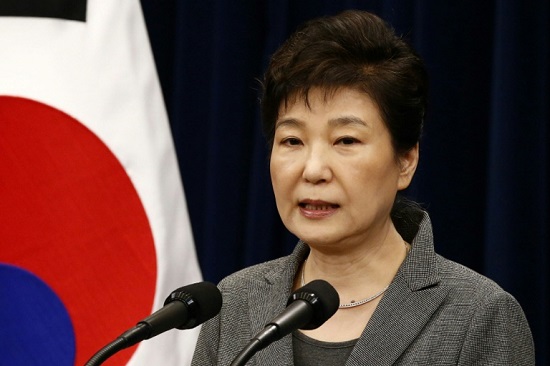This post has already been read 1193 times!
South Korea’s ex-president Park Geun-hye received a pardon on Friday, cutting short a jail term of more than 20 years for corruption with her successor saying he granted it in the interest of national unity.
The 69-year-old was serving a 20-year prison sentence for bribery and abuse of power, with another two years after that for election law violations.
“We must overcome the pain of the past and move forward into the new era,” said President Moon Jae-in, who was propelled into power in 2017 following public backlash against Park and her conservative party.
“Considering the many challenges we face, national unity and humble inclusiveness are more urgent than anything else.”
Moon said Park’s deteriorating health after serving almost five years in jail was also a factor in the decision to pardon her.
Park has been hospitalised several times this year. She is currently receiving treatment at a facility in the capital Seoul.
The amnesty will take effect on December 31, the justice ministry said.
Her corruption scandal exposed shady links between big businesses and politics in South Korea, with Park and her close friend Choi Soon-sil accused of taking bribes from conglomerates, including Samsung Electronics, in exchange for preferential treatment.
The amnesty decision marked a shift in Moon’s position from January, when at the end of her trial process, she became eligible for a pardon from the president.
His office had said at the time that it was a “historical lesson” that a former president had committed acts that led to a prison sentence.
“This should never happen again.”
Dramatic fall
The scandal marked a dramatic fall for Park, who grew up in the political spotlight and enjoyed a pampered life as the eldest daughter of Park Chung-hee — a dictator who ruled South Korea for nearly two decades until his assassination in 1979.
It shattered the image she had tried to create, of an incorruptible conservative icon who was beholden to none.
In addition to her prison sentence, Park was also hit with hefty fines.
South Korean prosecutors said in March this year they had seized the ex-president’s house after she failed to pay a $19 million penalty for corruption.
Despite her ouster, Park has remained popular in some conservative strongholds and the pardon comes during an increasingly bitter campaign for the presidential election in March next year.
Yoon Suk-yeol, the main conservative People Power Party’s candidate, welcomed the pardon.
His rival, Lee Jae-myung from the ruling Democratic Party, said he understood “Moon’s anguish for national unity”.
But, he added: “A sincere apology from former President Park is needed for the Korean people.”
Special pardons like the one received by Park can only be granted by the president in South Korea.
“While it may be too late to reduce political polarisation, it could improve Moon’s legacy,” Leif Eric Easley, a professor at Ewha Womans University, told AFP.
“Moon ending the political saga with Park might be an attempt to reduce the odds that he himself will face legal retribution after leaving office.”
South Korean presidents have frequently ended up in prison after their time in power, usually once their political rivals have moved into the presidential Blue House.
Chun Doo-hwan and Roh Tae-woo, former army generals who served jail terms in the 1990s for corruption and treason after leaving office, received presidential pardons after serving about two years.
Ex-president Roh Moo-hyun killed himself in 2009 after being questioned over graft allegations involving his family.
Lee Myung-bak, the only living ex-president aside from Park, is currently serving a prison sentence over corruption.



